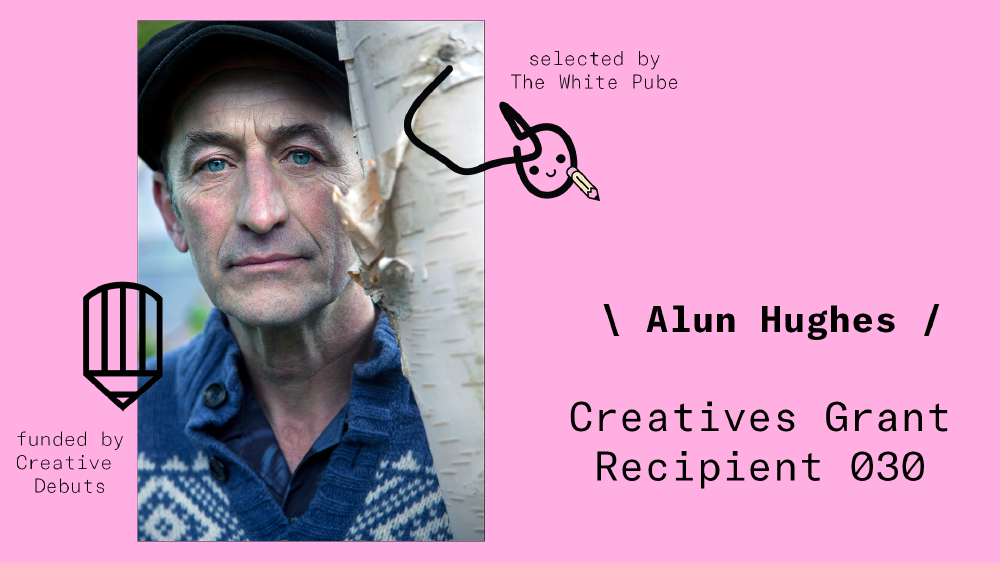
February 2023: Recipient 030, Alun Hughes
We are happy to announce that the 30th recipient of The Working Class Creatives Grant is Alun Hughes. Alun is a poet and singer living in Stroud, Gloucestershire. Alun sent us a selection of his poems and we were truly enamoured by them. The chunky weight of the words he uses, like they are strange and special, a kind of magic. I think his poems make language feel exciting or visceral - that’s so rare. Mostly, we love that his work can be enjoyed as words on a page and as music! As something heard and felt in so many ways. It felt like a good fit for him and his work, and we are really pleased to be able to support him in his work towards becoming a full time writer.
BIO: Alun Hughes is a poet and singer, a single parent of two teenage boys, living in Stroud, Gloucestershire. In 2020, he received a MA Creative Writing with Distinction from Bath Spa University. In 2021, he was a digital writer in residence with Dialect at the Cotswold Water Park and won third prize in the Troubadour International Poetry Competition. In 2022, he was shortlisted for the Laurie Lee Prize. Alun started working on land in 2000 as a farmhand on an organic farm just north of Lewes, Sussex. Since then, he has worked as a woodsman, yurt maker, hedge layer, teacher of woodland management and green woodwork. In 2008, he became involved in designing and facilitating courses in nature-based practice and wilderness work. Alun’s poetry pamphlet Down the Heavens, is published by Yew Tree Press. Somewhere Somewhere, an album of nine poems from the collection to original soundtracks, made with the band Lensmen, is out now on the Irregular Patterns label.
He is currently in the research and development phase for a book of poems/prose poems that begin their life in natural ecologies. The primary source material are moments during prolonged solo exposures in nature. This involves extensive field research in various British landscapes to glean this material. The element of desk-based research and writing time involves looking at their individual and joint qualities from the perspectives of myth, folk/tree lore, sonic (including indigenous languages), botanical, biological and historical. These diverse prisms of understanding may create assemblages, ensembles, eco poetic, polyphonic experiences. His hope is that these polyphonies begin to locate song lines in the land, a dialect of co-existence with the non-human.
LINKS: